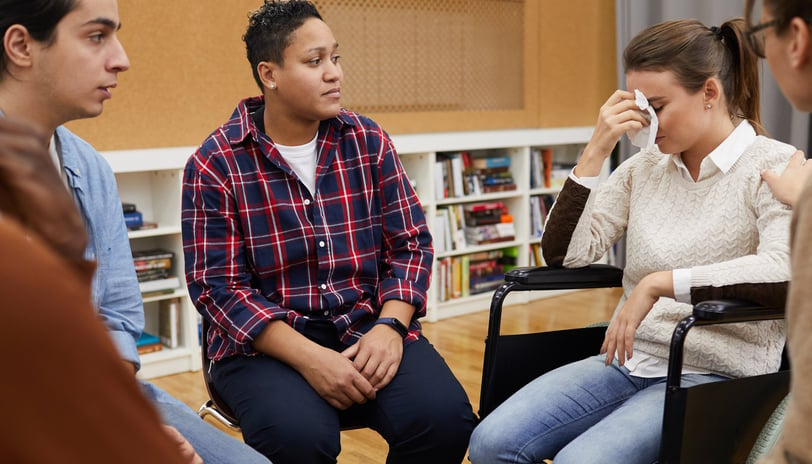Climate Change, Mental Health, and You
Explore the serious effects of climate change on mental health and discover ways to raise awareness and combat these challenges within our communities. Join the conversation on how we can support mental well-being in the face of climate change.
How to Stay Sane in a Warming World
Let’s get real for a minute: climate change isn’t just about melting ice caps and polar bears needing swim lessons. It’s also about us — our minds, emotions, and that gnawing feeling in your stomach when you hear about another wildfire or freak storm.
Here’s the deal: climate change messes with mental health in ways that don’t always make the headlines. This isn’t just science; it’s personal. So, grab a cup of tea (or your go-to comfort snack), and let’s unpack how to keep our heads on straight while the world heats up.
Living Through Climate Disasters: The Emotional Whiplash
Ever been in a car that suddenly slams on the brakes? That’s what living through a climate disaster feels like. Hurricanes, wildfires, floods — these events are not just physically devastating; they’re emotional gut-punches.
Take the California Camp Fire in 2018. People lost their homes, their communities, and their sense of safety. And let’s not forget about the Marshall fire in Boulder County Colorado that whipped out 1,000 homes in just a few hours a few days after Christmas, that killded 4 people. PTSD? Skyrocketed. Anxiety and depression? Off the charts. And the ripple effects didn’t stop when the flames were extinguished.
Not everyone has to face a disaster directly to feel the strain. There’s even a term for it: eco-anxiety. It’s that low-key (or not-so-low-key) dread about the future. Like when I smelled smoke from a fire a few miles away this summer and immediately thought, “Time to pack an emergency bag?” Spoiler alert: I did.
It’s not just big events, though. Even slow-burn climate changes, like rising sea levels or extended droughts, can lead to a creeping sense of unease. It’s like a background hum you can’t quite ignore, gnawing away at your peace of mind.
Who Feels It Most? Hint: It’s Not Just You
Climate change doesn’t play fair. Marginalized communities — low-income families, people of color, Indigenous groups — often bear the brunt. Why? Less access to resources, healthcare, and sturdy infrastructure. The mental health toll? Multiply it.
Imagine facing back-to-back hurricanes while worrying about how to afford repairs or even get basic help. It’s like trying to juggle flaming torches when you’ve never even juggled tennis balls.
Kids and teens are another group particularly at risk. Growing up with a constant stream of climate warnings can make young people feel hopeless about the future. That’s a heavy burden for any generation to carry. And let’s not forget seniors, who may have fewer physical or financial resources to recover from disasters.
If you’re wondering, How can we fix this?, you’re not alone. Addressing these disparities means policies that focus on equity. That’s a fancy way of saying: let’s not leave anyone behind.
We also need to talk about climate grief. It’s a real thing. People mourn the loss of landscapes, species, and even the stability they once knew. Think about how you’d feel if your favorite park was wiped out by a flood. Now multiply that feeling across the planet.
Governments: Step Up, Please
Governments have a big role here. We’re talking about policies that treat mental health as a key part of climate resilience. Some ideas:
More Funding: Mental health services need cash, and lots of it. Especially in areas hit hardest by climate events.
Community Initiatives: Targeted programs for vulnerable groups, like children and seniors. They’re the ones who often feel the emotional strain the most.
Education and Awareness: Normalize talking about mental health. No one should feel embarrassed for needing help after a disaster (or anytime, really).
Fair Policies: Address how climate change disproportionately affects marginalized communities. Equity isn’t just a buzzword; it’s a necessity.
Some countries are already stepping up. For example, New Zealand includes mental health in its broader climate resilience strategies. But we need more governments to follow suit. This isn’t just about preparing for the next hurricane season; it’s about building long-term systems that support emotional recovery and well-being.
Community Power: Stronger Together
Let’s not just sit around waiting for governments to get their act together. Communities can create real change. Support groups, counseling services, and resilience-building programs make a difference. Think of it as your neighborhood becoming a superhero team. (You can be the one with the cool cape!)
Consider community gardens or local renewable energy projects. Not only do these initiatives combat climate change, but they also create social connections that help people feel less alone. Connection is key. When you’re part of a group, it’s easier to face challenges together.
Pro tip: Social connections matter. When you’re not feeling great, leaning on someone who gets it can lighten the load. Bonus points if you’re also plotting ways to make your town more climate-resilient.
Your Mental Health Toolbox
Here’s the part where we talk about what you can do. Because yes, you have power too.
Self-Care Is Non-Negotiable
Meditate. Walk in nature. Dance like nobody’s watching (and hope nobody is watching). Whatever helps you breathe a little easier, do that.Stay Informed, But Chill About It
Keep up with the news, but don’t doom-scroll. Balance the scary headlines with stories of people making a difference.Build Your Squad
Join local climate action groups or online communities. The collective energy of people who care can be contagious — in a good way.Speak Up
Your voice matters. Advocate for policies that tackle climate change and prioritize mental health. Write to your representatives. Sign petitions. Or just shout into the void on Twitter (or whatever it’s called now. Also can it still be referred to as a tweet?).Live Sustainably
Reducing your carbon footprint isn’t just good for the planet; it feels good, too. Compost, bike to work, or start small by swapping single-use plastics for reusable options. Bonus: you’ll look super cool with that metal straw.Practice Gratitude
Sometimes, focusing on what’s going right can help balance out the stress. Celebrate small wins — like your city installing a new bike lane or a friend switching to solar power.Seek Professional Help When Needed
There’s no shame in getting support from a therapist, especially one who understands eco-anxiety. Mental health is health, period.
Why This Matters
Climate change is a colossal problem. But ignoring its mental health effects is like putting a Band-Aid on a broken arm. It’s time we take a holistic approach that includes emotional well-being.
This matters because mentally strong individuals create strong communities. And strong communities are the backbone of resilience. Together, we can tackle the dual challenges of climate change and mental health with hope and determination.
Take the Next Step
Want to learn more about how to stay resilient and live sustainably? Download my book, Living Lightly: Everyday Practices for a Greener World. It’s packed with practical tips, hopeful stories, and ways to turn eco-anxiety into eco-action.
Have questions or want to share your own climate story? Reach out! Let’s keep the conversation going.
Remember: you’ve got this. And we’ve got each other.


"The infrastructure for linking environmental health and public health is not working as well as it should." - Samuel Wilson
References:
Smith, A. (2022, May). The Impact of Climate Change on Our Health and Health Systems. The Commonwealth Fund.
Doe, J. (2022). The Mental Health Implications of Climate Change. The Lancet Public Health.
Johnson, L. (2022, April). Expanding Access to Equitable Behavioral Health Services. The Commonwealth Fund.
Johnson, L. (2022, January). Insult to Injury: Natural Disasters and Residents' Financial Health. Urban Institute.
American Psychological Association. (2020, February). Climate Change and Mental Health. APA.
Obradovich, N. et al. (2021). The Mental Health Consequences of Climate Change. JAMA Psychiatry.
Chen, M. et al. (2022). Short-term exposure to air pollution and increased suicide attempts: a case-crossover study. SSRN.
Xu, Y. et al. (2022). Elevated anxiety levels in relation to long-term air pollution exposure. Environmental Health Perspectives.
Lowe, S. et al. (2009). Psychological resilience after Hurricane Katrina: The influence of individual, social, and environmental factors on mental health. Nature.
Van Reeuwijk, M. et al. (2022). Trauma exposure and post-traumatic stress disorder among California residents during the 2018 California Camp Fire. PLOS Currents.
